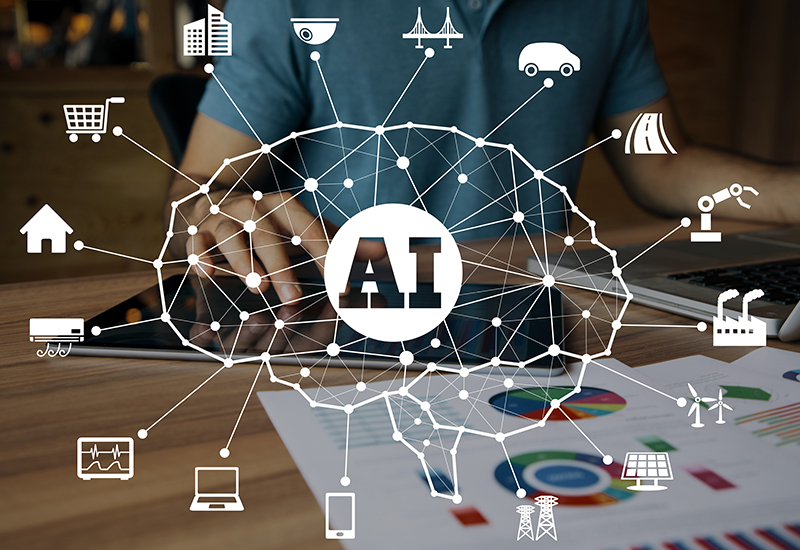Artificial Intelligence (AI) has increasingly been in the news for quite some time now. Be it unleashing new business potential or making digital marketers’ work more effective; there are multiple interesting applications of AI. Key components of AI include artificial neural network, deep learning, and machine learning. It would not be wrong to say that these fields have emerged as separate ecosystems by themselves.
For marketers, the key aspect that showcases a promising future of the blend of digital marketing with AI is customer data. This data is available across multiple sources, in different formats, and across various types (like structured and unstructured data). The primary challenge for today’s marketer is to make sense of the seemingly random pieces of information and weave it together to generate previously hidden insights.
The best part about such data is that it doesn’t need a full tech stack of AI-based solutions to make sense. Even a smaller subset of AI like machine learning will be fully capable of delivering tremendous business value with the help of processes like parsing of customer data from a diverse source, data prediction, and other features that fulfil the marketing automation objectives.
However, one common theme comes out of this exciting partnership between marketing and AI. As more and more sources are being tapped to know the target customer better, the role of AI applications in making sense of the broader spectrum of data will keep on increasing.
Making sense of the numbers with AI prowess
Given the immense potential, it is not surprising to see many marketers today looking at using AI into their marketing campaigns, especially in content marketing. Even machine learning is proving to be valuable in tapping into newer audiences and boosting the user base for a particular brand based on their buyer persona objectives. It helps in sifting through massive troughs of big data that on first glance, look unrelated, but when explored from the eyes of machine learning, yield phenomenal insights. These may be in the form of information on rewarding markets, segments, or patterns that give better direction to your marketing campaigns.
How will AI help marketing?
It is interesting to note the key objective with which these initiatives are driven. Marketers would need the massive influence of AI to meet a prime goal – that of personalised customer experiences. Also, there are other exciting avenues. Let’s discuss them below –
1 – Customer experiences at the heart of AI adoption
Marketers focusing on segmentation and personalisation of ad campaigns reported positive yields for their campaigns. AI and machine learning can easily traverse through billions of data points, and help the marketers to create better market segments. They can facilitate more impactful ad delivery to improve the conversion rate on the basis of personalised marketing messages.
2 – Better recommendations
AI will analyse the kind of content users would be interested in. This helps marketers to generate bespoke content that is deeply tailored and looks more natural to individual preferences. This will impact different marketing activities like loyalty programs and promotions.
3 – Leveraging data in real time
A third area where AI can deliver exemplary impact will be marketing automation. Of course, this won’t mean that the marketer’s job would be reduced to nothing. Here, AI would work with up-to-date data and use predictive modelling to deliver real-time deals and offers that the customer is actually looking for at that time.
It will be wrong to term AI as the ‘magic pill’ that cures all ills (for the marketers). But yes, it is true that in its current form, AI has the capabilities to boost the marketer’s efficacy and generate better outcomes.





